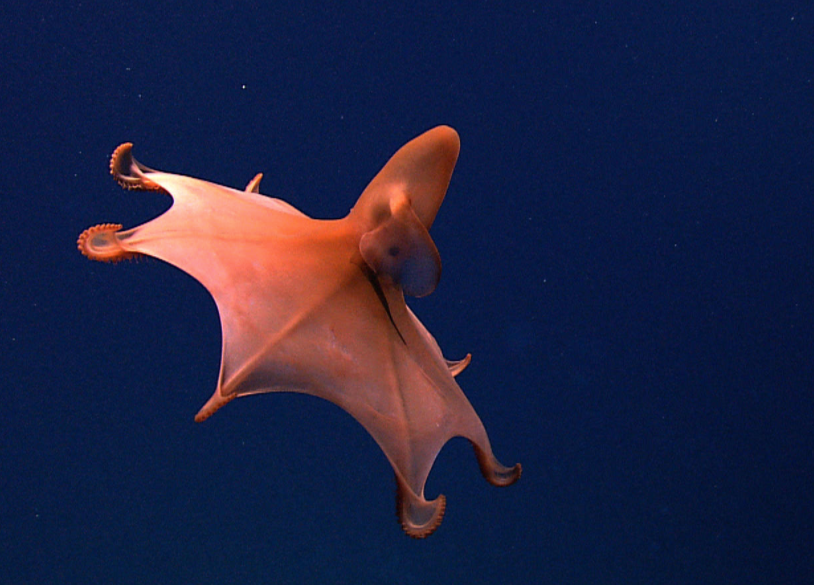- The European Commission recently announced that it will protect 16,000 square kilometers (6,200 square miles) of the deep sea — known as “vulnerable marine ecosystems” — in EU waters in the northeast Atlantic Ocean by prohibiting bottom fishing in these areas.
- This move is a key component to the Deep-Sea Access Regulation, a plan adopted by the EC in 2016 to protect deep-sea environments in EU waters. However, the regulation stipulated that vulnerable marine ecosystems should be protected by 2018, so its implementation comes four years late.
- The fishing sector has warned that this move will threaten the future of bottom fishing and impact more than 10,000 fishers.
- Conservation experts have welcomed this announcement, despite its lateness, saying that such a move is essential in protecting fragile and ecologically important deep-sea environments.
BRUSSELS — On Sept. 15, the European Commission made a historic announcement: it will prohibit bottom fishing across 16,000 square kilometers, or 6,200 square miles — an area about half the size of Belgium — in waters controlled by the European Union in the northeast Atlantic Ocean. While some fisheries representatives have criticized the decision, saying it will lead to “devastating consequences” for the industry, conservation experts say it’s a necessary step to protect ecologically significant deep-sea environments.
The new rule will bar bottom fishing in 87 sites 400 meters (1,300 feet) and deeper — known as “vulnerable marine ecosystems” under EU and international law — in the exclusive economic zones of Ireland, France, Spain and Portugal. The ban will apply to fisheries that use trawling gear, bottom-set gill nets, bottom-set longlines, and pots and traps.
Conservation experts say many of these deep-sea sites harbor cold-water coral reefs, as well as aggregations of deep-sea sponges, sea pens and other important species.
The areas marked for closure once the ban is fully implemented will account for just 1.16% of EU waters in the northeast Atlantic, according to the EU.
This decision is part of the EU’s overarching plan to protect deep-sea environments. In 2016, the EC introduced the Deep-Sea Access Regulation, which led to a ban on bottom trawling at deep-sea sites below 800 m (2,600 ft) in EU waters in the northeast Atlantic. The regulation stipulated that vulnerable marine ecosystems should be protected by 2018 — but the EC is just now implementing this part of the plan.
“It’s great that this is coming now, but we have to remember that this is already four years late,” Sandrine Polti, an adviser on fisheries and environmental policies and spokesperson for the Deep Sea Conservation Coalition (DSCC), told Mongabay in an interview.
Polti said this move was essential to protect “fragile” deep-sea ecosystems.
“The deep sea is a very sensitive environment,” she said. “Life in those depths is particularly vulnerable to any kind of disturbance.”
Nicolas Fournier, campaign director for marine protection at marine conservation group Oceana in Europe, said he also welcomed the EC’s decision.
“Cold-water corals or deep-sea sponge gardens can be irreversibly destroyed by the passing of a single bottom-trawl, so closing bottom-fishing is the most sensible decision to permanently protect these ecosystems,” he said in a statement shared with Mongabay. “The adoption of this Implementing Act confirms the EU’s commitment to science and precaution when managing deep-sea fisheries, and we hope this also serves as a benchmark for other decisions to come, such as addressing destructive fishing inside EU marine protected areas.”

Virginijus Sinkevičius, the European commissioner for the environment, oceans and fisheries, said in a statement that this move will help ensure the protection of marine resources for future generations, and that he was “grateful for the commitment and efforts made by the fisheries sector to accompany this new chapter of ocean conservation.”
However, some fisheries organizations have criticized the EC’s decision. For instance, the European Bottom Fishing Alliance (EBFA), said in a press release that the EC failed to assess the socioeconomic impact of its move, and therefore threatened the future of bottom trawling and the livelihoods of more than 10,000 fishers. The group also called into question the scientific report on which the EC based its decision, saying it had “obvious shortcomings.”
“We fully agree with the European Commission’s objective to preserve vulnerable marine ecosystems, but we cannot be satisfied with a botched legislation,” Ivan Lopez, the president of the EBFA, said in the release.
Lopez previously stated in August that the group would “go to court” if the decision came to pass.
The Spanish Fishing Confederation, CEPESCA, also released a statement saying that the EC’s decision would have “devastating consequences” to the fishing industry.
However, Polti said the move is essential in protecting life not only in the deep sea, but in the greater ocean.
“If we want to make sure that life continues in the deep sea, we need to make sure that those vulnerable marine ecosystems remain,” she said, “because they are the ones that allow fish to reproduce and life to go on.”
Banner image: A deep-sea fish. Image by NOAA.
Elizabeth Claire Alberts is a staff writer for Mongabay. Follow her on Twitter @ECAlberts.
FEEDBACK: Use this form to send a message to the author of this post. If you want to post a public comment, you can do that at the bottom of the page.














